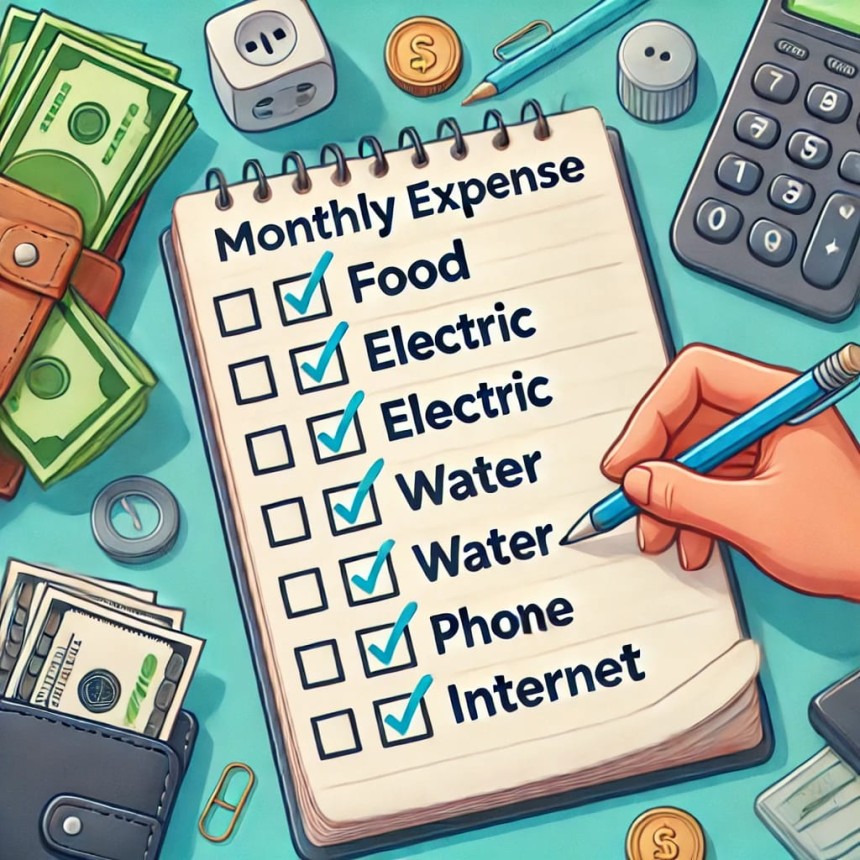
7 Sneaky Ways You're Wasting Your Money
Most of us dream of achieving financial freedom, but the harsh reality is that without the right systems in place, it's all too easy to keep making the same money mistakes over and over again. In this blog, I'm going to share with you seven of the biggest money mistakes that sabotage your finances and tips on how to break out of them. Let's get into it!
Mistake 1: Keeping Your Head in the Sand

In psychology, there's a term for this called avoidance coping. It refers to the way people tend to avoid information that they perceive as negative or threatening. This is particularly common when it comes to money and personal finance. People believe that by not acknowledging a problem, they can avoid the discomfort associated with it.
For example, someone might avoid talking about a pay raise with their boss because they fear rejection. Others might avoid discussing money goals with their partner because their priorities and values are so different. Some people even ignore bills or expenses they can’t afford. By avoiding these discomforts, we might feel temporary relief, but all we're doing is delaying the pain and postponing our larger goals.
What you want to do instead is make it difficult for yourself to ignore these issues. One effective way is by using behavioral nudges, a concept I learned from the book Nudge. The idea is to introduce subtle changes in how choices are presented to encourage better decision-making without restricting your freedom.
For instance, set up automatic alerts for your financial activities. Every time your bank account hits a low balance or an upcoming bill is due, get an alert to remind you of your financial situation. Automating your savings and investments can also help avoid the temptation to ignore these tasks. Behavioral nudges guide you towards more beneficial behaviors without taking away your autonomy.
Mistake 2: Obsessively Comparing Yourself to Others

In today's connected world, social media allows us to constantly see what others have or are doing. This can lead to the phenomenon of "keeping up with the Joneses," where people compare themselves to others and strive to match or exceed perceived social status.
When you obsessively compare yourself to others, you often spend beyond your means or make decisions based on others' lifestyles instead of focusing on what you actually want. You might feel compelled to upgrade your house, car, or lifestyle just to impress others.
To lessen this desire, try an "ideal end-state" exercise. Write down a list of things you want in your ideal life, and be specific about what your day looks like, who you're around, and how you're feeling. Each time you're tempted to buy something, ask yourself if it aligns with your ideal life. If it doesn't, remind yourself of what you're truly working towards.
Mistake 3: Not Turning Your Capital Quickly Enough

Many people hold onto substantial cash reserves without putting them to use, which is an inefficient use of financial resources. Letting money sit idle in a bank account prevents it from working for you.
There are both short-term and long-term strategies to make your capital work. A good short-term strategy is investing in yourself through education or skill development, which increases your earning potential. For example, taking a video editing course can enable you to start a side business, diversifying your income sources.
A longer-term strategy is investing in index funds that track the S&P 500 or global markets, which historically offer higher returns than traditional savings accounts. By actively managing and deploying your capital, you can maximize returns.
Mistake 4: Not Assigning an Hourly Rate for Yourself

Your hourly rate is the value of your time. If your hourly rate is $100, then tasks you don't enjoy that could be done at a lower rate, such as $15 or $3 per hour, should be outsourced or delegated. This frees up your time for higher-value activities or rest.
Take a look at your daily tasks, both at work and home, and identify which lower-value tasks you can delegate. For example, could you save time by outsourcing household chores? Optimizing your time helps you maximize your earnings.
Mistake 5: Not Living on 90% of Your Income

The concept of living on 90% of your income is from the book The Richest Man in Babylon. By living on only 90% and saving or investing the other 10%, you can build savings and make your money work for you. If you're spending close to everything you earn, you'll always be stuck working for more, and miss the benefits of compound interest.
If saving 10% is difficult, pay off high-interest debt first. Automating your savings and investments also makes it easier to stay on track. Finally, plan for large expenses by setting aside money each month, preventing them from disrupting your budget.
Mistake 6: Focusing on Cutting Back Instead of Making More

People often focus on cutting spending to avoid financial loss, a concept known as loss aversion. However, while saving is important, it's equally crucial to focus on increasing your income.
There's a limit to how much you can save, but the potential for earning more is much higher. Instead of fixating on small expenses, like cutting out lattes, focus on opportunities for a raise or additional income streams.
Mistake 7: Not Tracking Your Expenses

Not tracking your spending is like driving a car without a fuel gauge — you have no idea how much you’re using or whether you’ll have enough to reach your destination. Not knowing how much you're spending or where it’s going can lead to overspending, running out of money, and financial stress.
Start by tracking your spending to see where your money is going each month. Based on this, create a budget that includes your income, expenses, and savings goals. Redirect your spending toward savings, investments, and paying off debt.
________________________________________________________Thank you !





